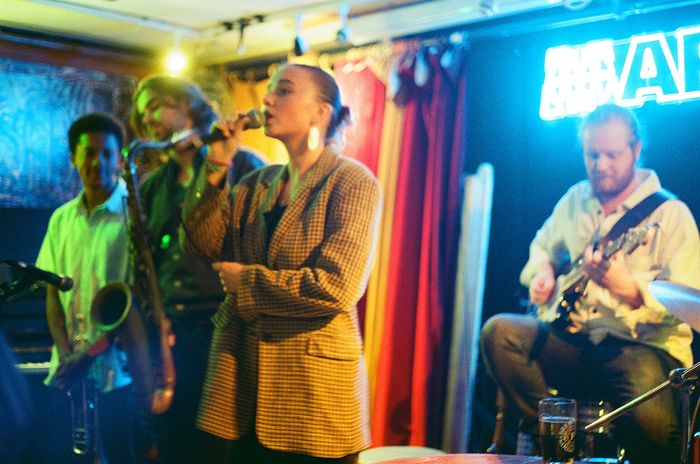Amy Munro-Faure on Cambridge Zero’s fight against climate change
Sophie Denny and Amelie Bromnick report on the organisation at the forefront of the mission to educate the youth on how to combat the climate crisis

Amy Munro-Faure is head of education and student engagement at Cambridge Zero, the organisation at the heart of the University’s mission to combat climate change. It’s a global challenge, but their aims are simple: research, education and collaboration. Cognisant of just how “interdisciplinary” the fight against climate change is, Munro-Faure explains how they attempt to support collaborations between the “cutting-edge expertise” across the University to support transformative research and real change.
“It’s so important ‘to get young people’s voices to the table’”
In her personal role, Munro-Faure is focused on transporting this knowledge throughout the education system. For example, the organisation recently worked with Cambridge University Press to review the OCR Geography GCSE curriculum to add some more climate-centred content. From a wider perspective, she recognises the role Cambridge Zero plays in exploring the “unique things that we can do that really make sure [the University] can do the most to fight the climate crisis”. Yet she is keen to point out that Cambridge is an “experimental university”, and so we “don’t always get it right”.
Having engaged in this kind of work since she graduated from Cambridge with a degree in Natural Sciences, Munro-Faure says that she has “drawn inspiration from students at Cambridge” and feels “enormously privileged” to now be working with them “at the start of their careers”. She has been lucky enough to meet many other inspirational figures, including Mary Robinson, former president of Ireland, who introduced the organisation’s Youth Engagement project at COP28 this past December.
“We ‘clearly need to go much, much further, much, much faster’”
The ActNowFilm project featured 30 young climate leaders from across the globe in conversation surrounding what we can do to combat the climate crisis. Munro-Faure says that it’s so important to get “young voices to the table”, and speaks of the “renewed sense of urgency” behind the ideas driving youth engagement. Meanwhile, she tells me of the “conflict of interest” inherent in staging a climate conversation in Dubai, an economy so fundamentally reliant on oil. This “tension” was present throughout, and her dissatisfaction at the outcome of the COP28 agreement is felt. “In the next decade, we need to transition five times faster than we have in any previous decade. That agreement does not do that”; we “clearly need to go much, much further, much, much faster”.
“Always keep the focus on the systemic, rather than pushing the responsibility onto the individuals”
“There is always hope” though, Munro-Faure believes. The students she works with are a testament to this; that is “the extraordinary thing” about the University, she tells me – it is “packed full of people at the start of their careers, ready to make this happen”. The organisation itself runs a number of initiatives that students can get involved in. The Green Careers Festival, running from 29 January, will feature a number of panels staging career opportunities centred around the climate challenge. Furthermore, the organisation runs the Future Leader Programme, a summer placement opportunity sending students on climate-focused missions. Any society at the University can also apply for the organisation’s Student Societies’ Fund, centred on promoting climate consciousness across the University.

Alice Markham: life as a singer, songwriter and student
As the conversation comes to an end, Munro-Faure says that although it “can look quite scary”, she has “great faith in the drive and creativity and vision of so many of the people”. While it’s important to make lifestyle changes, we must “always keep the focus on the systemic, rather than pushing the responsibility onto the individuals”. She remains optimistic, and although the world “is going to be different”, with organisations like Cambridge Zero and the drive of young people like the students she works with, she remains hopeful that we will be able to “live as well as we can”. Ultimately, it’s about “making the most of the time” we have at Cambridge, and doing what we can to fill our armouries in the systemic battle against climate change.
 News / Candidates clash over Chancellorship25 April 2025
News / Candidates clash over Chancellorship25 April 2025 Interviews / Dr Ally Louks on going viral for all the wrong reasons25 April 2025
Interviews / Dr Ally Louks on going viral for all the wrong reasons25 April 2025 Music / The pipes are calling: the life of a Cambridge Organ Scholar25 April 2025
Music / The pipes are calling: the life of a Cambridge Organ Scholar25 April 2025 News / Cambridge professor paid over $1 million for FBI intel since 199125 April 2025
News / Cambridge professor paid over $1 million for FBI intel since 199125 April 2025 Arts / Plays and playing truant: Stephen Fry’s Cambridge25 April 2025
Arts / Plays and playing truant: Stephen Fry’s Cambridge25 April 2025





